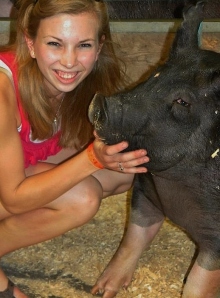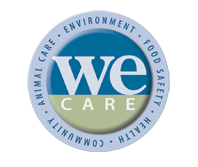Nearly one out of every eight people goes to bed hungry. That is 842 million people who don’t know where they will find their next meal. That is parents who go to work without a pay check big enough to pay for food. That is children dying because they aren’t able to scrounge for enough nutritious food. That is families torn apart simply because they don’t have access to food. As the population continues to grow, food insecurity becomes a bigger problem.
According to the World Health Organization, food security is built on three pillars. Food availability, food access and food use all are components of food security. Making sure there are sufficient quantities of food available on a consistent basis is food availability. Access to food involves having sufficient resources to obtain appropriate foods for a nutritious diet. Lastly, use is defined by the knowledge of basic nutrition and care as well as adequate water and sanitation.
There are many debates about the amount of food available to adequately feed the world. The future needs of food, national food security related to global trade and the benefits and challenges involved with globalization are all involved.
I am lucky to have been born into a family who didn’t have to worry about where our next meal came from. Unfortunately, some people struggle daily to find food daily. They aren’t able to live a normal life, as their stomachs hunger for nutrition. As a society and world, we need to come up with innovative agriculture solutions to feed our growing population.
The Agriculture Innovation Prize sponsored by the Howard Buffett Foundation is one way in which we can help to solve the world’s food insecurity problems. The contest focuses on innovative ways to improve agriculture. That doesn’t just mean on the farm changes though. It encompasses the entire food system supply chain. Anything that involves land access and soil sustainability, agriculture production, distribution and aggregation, food processing and manufacturing, preparation-consumer and institutional products, and resource and waste recovery all encompass the contest.
Have an innovative agriculture idea? Think you have the next best way to solve a big problem related to farming, food, resources and waste? Please apply for the Agriculture Innovation Award. Details can be found at http://agprize.com. The entry deadline is February 28th, 2014. All you need for an entry is ten slides and a two page report. You could change the world with simply a ten slide entry and a few paragraphs explaining your idea.
Twenty five teams will be selected to compete in Madison, Wisconsin for the grand prize awards in April. There will be five winners. The grand prize winner will win $100,000 prize and the other four finalists will get $25,000 dollars. There will also be an audience choice award in the amount of $15,000.
I have been honored to be able to work with this project. Currently we are in the process of selecting speakers for the Key Note. I am not lying when I say that we are really dreaming big and aiming to get a large name to campus to provide inspiration for the contestants and audience.
Again, if you are interested or have an idea, big or small, that could change agriculture please visit http://agprize.com and apply for this enormous award! You could make a difference in the lives of thousands of people who are affected by hunger.

